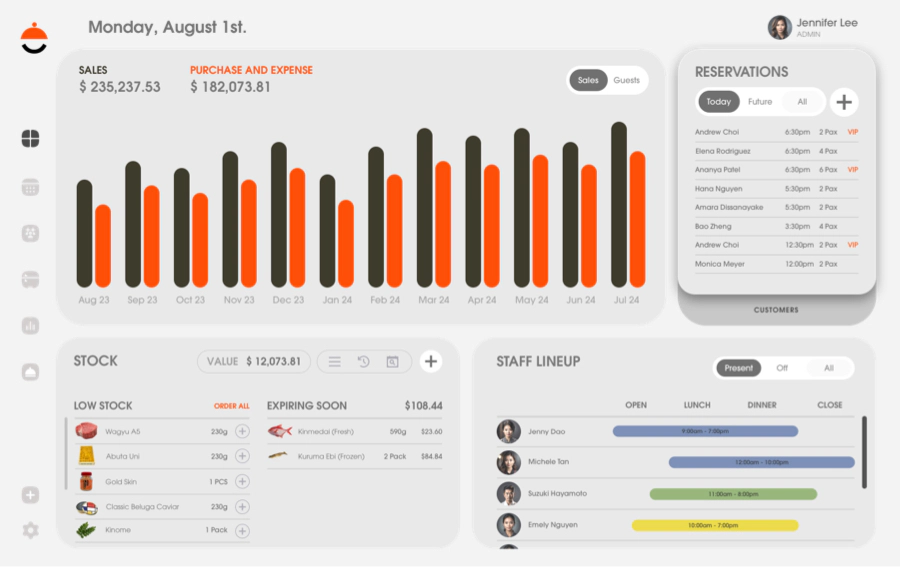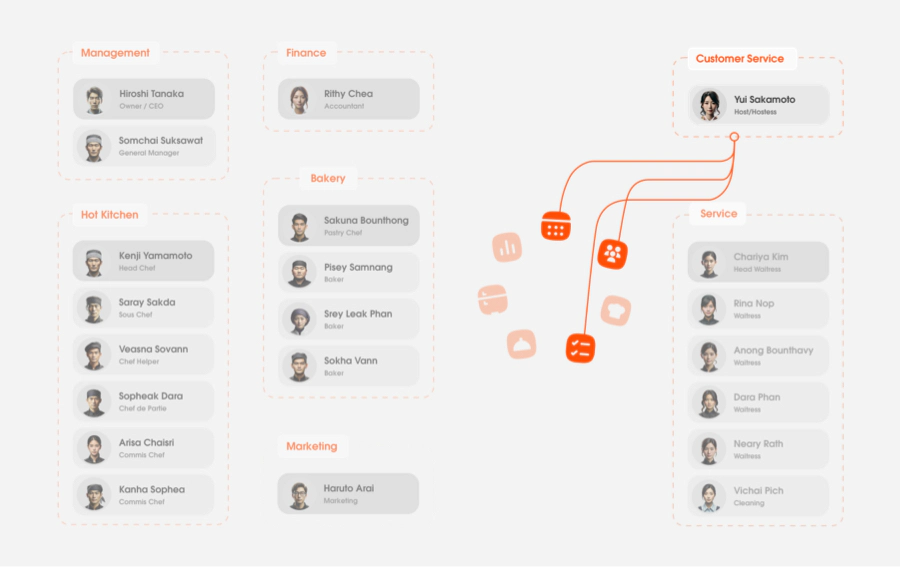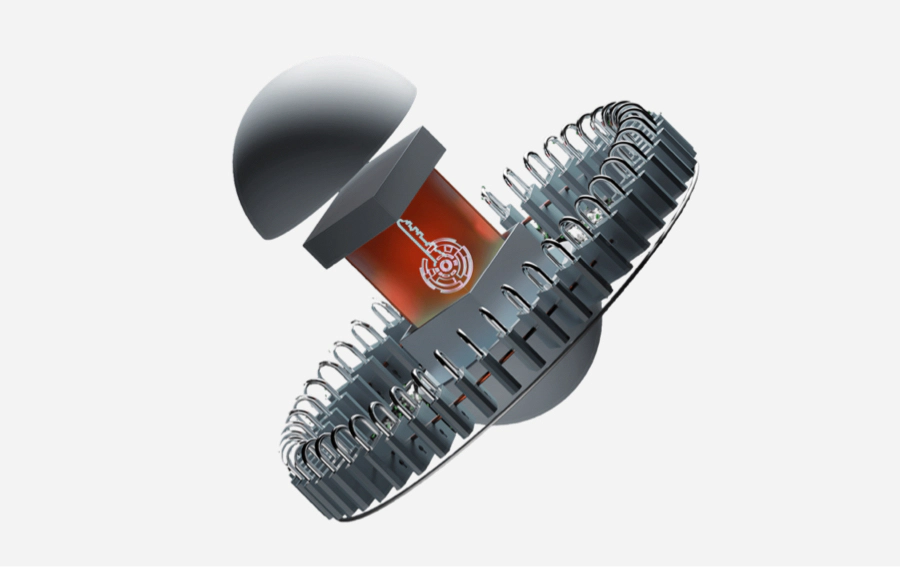Restaurant Management 101: An Essential Guide
Author
Jesus
Published
Aug 23, 2024
Tags
To keep your restaurant running smoothly, it’s essential to understand the responsibilities of a restaurant manager, which include overseeing restaurant staff, implementing marketing strategies, and fostering a positive management style. Learning how to manage your restaurant with restaurant management software can greatly improve efficiency. If you’re aiming to become a restaurant manager, a degree in hospitality can be beneficial, but practical experience and employee management skills are equally important. Consider these 15 restaurant management tips to help you manage and thrive in the food service industry.
Hiring and Managing Staff: Prioritizing Your People
In the world of hospitality management, hiring and managing staff is crucial for successful restaurant management. Every restaurant thrives on its restaurant employees, making it one of a restaurant manager’s top priorities to create a positive work environment. Implementing effective restaurant management practices not only enhances daily operations but also boosts profit margins.A successful restaurant manager understands that staff management involves training staff and utilizing scheduling software to streamline processes. A restaurant management system can be essential in ensuring effective restaurant management and improving service management. By focusing on ways to improve entry-level positions and developing a comprehensive restaurant management guide, best restaurant managers cultivate a strong team.
Customer Service: Give Them a Reason to Come Back
Restaurant management involves various strategies to enhance the customer experience, making it crucial for a successful restaurant business. Every restaurant manager needs to focus on delivering exceptional service, ensuring that aspects of the restaurant meet high standards. Train your staff effectively to create a welcoming atmosphere that encourages guests to return.
Important restaurant management practices also include using software can help streamline operations and improve efficiency. Management strategies in hospitality and restaurant settings should prioritize customer satisfaction, as restaurant management ensures that all team members are aligned with the business goals. Implementing restaurant marketing techniques can further entice former customers to revisit.
In every management position, the restaurant manager isn’t just a leader but also a vital part of creating a memorable restaurant experience. Following the best restaurant management tips can help manage restaurant staff effectively, fostering a culture of excellence that keeps guests coming back for more.
Food Safety and Hygiene: Sanitation Is Paramount
Food safety and hygiene are crucial for any restaurant owner. Implementing effective restaurant management tips to improve sanitation can significantly enhance the dining experience and ensure compliance with health regulations. Business management practices that prioritize hygiene are essential for aspiring restaurant professionals.In restaurant management, sanitation is paramount and includes regular cleaning and monitoring of food preparation areas. A degree in hospitality or restaurant management is beneficial for those pursuing restaurant management positions. Effective time management and food service management are key aspects of a successful restaurant management role, as outlined by the National Restaurant Association.
Financial Management: Running a Profitable Business
Financial management is crucial for running a profitable business in the restaurant industry. Effective restaurant management includes various elements, such as budgeting and forecasting, ensuring that profits are maximized. A degree in hospitality management can enhance a restaurant manager's ability to navigate these challenges.Restaurant management involves overseeing all aspects of operations within a restaurant, where restaurant workers play essential roles. The role as a restaurant manager may include restaurant inspection and implementing restaurant management technology to streamline processes. Managing a restaurant is complex, but a skilled restaurant manager knows the importance of these restaurant management responsibilities.
Ultimately, understanding why people choose a restaurant is an important restaurant management skill that can drive success. By engaging effectively with restaurant work and supporting restaurant workers, managers can create an environment that fosters profitability and customer satisfaction.
Inventory Management: Preventing Spoilage, Spillage, and Shrinkage
Inventory management is important in restaurant management to prevent spoilage, spillage, and shrinkage. Effective inventory practices ensure that food items are used before they expire, reducing waste.Restaurant managers are responsible for maintaining optimal stock levels and minimizing losses. Utilizing management software can help streamline this process, allowing managers to track inventory in real-time.
This technology enables management look at trends and make informed decisions, ensuring that a restaurant effectively operates with minimal waste and maximum profit.
Marketing and Promotion: Getting the Word Out
Restaurant management plays a crucial role in ensuring the success of any dining establishment. One of the key aspects of this role is effective marketing and promotion, which involves getting the word out to attract customers. Utilizing social media platforms, local advertising, and engaging community events can significantly enhance visibility. Additionally, creating special promotions or loyalty programs can entice repeat visits, making it essential for restaurant management to stay innovative. By focusing on these strategies, restaurants can build a strong reputation and foster lasting relationships with their patrons, ultimately driving growth and profitability.Reducing Employee Turnover
Restaurant management is crucial for creating a positive work environment that fosters employee loyalty. By implementing effective training programs and offering competitive benefits, managers can significantly reduce turnover rates. Additionally, recognizing employee contributions and encouraging open communication are important strategies that help retain staff. Ultimately, prioritizing employee satisfaction not only enhances morale but also improves overall service quality.Delegating Responsibilities
In restaurant management, effectively delegating responsibilities is crucial for success. By assigning tasks to staff based on their strengths, managers can enhance productivity and ensure smooth operations. This practice not only empowers employees but also fosters teamwork, allowing the restaurant to serve customers efficiently. Ultimately, mastering delegation is an important skill for any successful restaurant management team.Continuously Curating Your Menu
Restaurant management is crucial for maintaining a fresh and appealing menu that attracts customers. Continuously curating your menu allows you to adapt to seasonal ingredients and evolving culinary trends. This proactive approach not only enhances customer satisfaction but also boosts profitability. By keeping your offerings dynamic, you can ensure that your establishment remains competitive in a rapidly changing market. In addition to updating the menu, effective restaurant management also involves training staff to understand and promote these changes. Staff who are knowledgeable about the latest dishes and ingredients can make recommendations that enhance the dining experience and encourage upselling. Regular training sessions can keep the team engaged and informed, enabling them to share the story behind each dish.Moreover, gathering feedback from customers is essential for refining your menu. Implementing comment cards, conducting surveys, or utilizing social media platforms can provide valuable insights into customer preferences and dining habits. This feedback loop allows you to identify which dishes resonate and which may need to be reimagined or removed.
Teamwork and Communication
Teamwork and communication are essential elements in restaurant management. A successful dining experience relies on every staff member working harmoniously, ensuring that tasks are completed efficiently. Clear communication fosters a positive environment, allowing team members to share important information about orders, customer preferences, and service standards. When everyone is on the same page, it not only enhances productivity but also improves customer satisfaction. Ultimately, prioritizing teamwork and effective communication in restaurant management leads to a thriving establishment.Other Challenges Restaurant Managers Face
In the fast-paced world of hospitality, restaurant management is important for ensuring smooth operations and customer satisfaction. However, managers face various challenges beyond day-to-day tasks. Staffing issues, such as high turnover rates, create hurdles in maintaining a consistent quality of service. Additionally, fluctuating food costs can impact budgeting and profitability, requiring managers to be agile and resourceful. Furthermore, adapting to changing consumer preferences, including dietary restrictions and sustainability concerns, adds complexity to menu planning. Overall, effective restaurant management involves navigating these obstacles while fostering a positive work environment and delivering exceptional dining experiences.Vision and Perspective
In the realm of restaurant management, having a clear vision is crucial for success. A well-defined perspective helps in making strategic decisions that align with the restaurant's goals. It allows managers to anticipate challenges and seize opportunities in a competitive market. Moreover, fostering a positive workplace culture and understanding customer expectations are essential components of effective management. By cultivating a strong vision, restaurant managers can inspire their teams, enhance customer experiences, and drive profitability. Ultimately, the ability to integrate vision with practical perspective shapes the future of any dining establishment.Related Posts
No Posts Found
Contact
Connect with Us!
Have questions or need support? Reach out and our team will assist you promptly. Fill out the form below to request a demo or get more information. Let’s simplify your restaurant management together!





